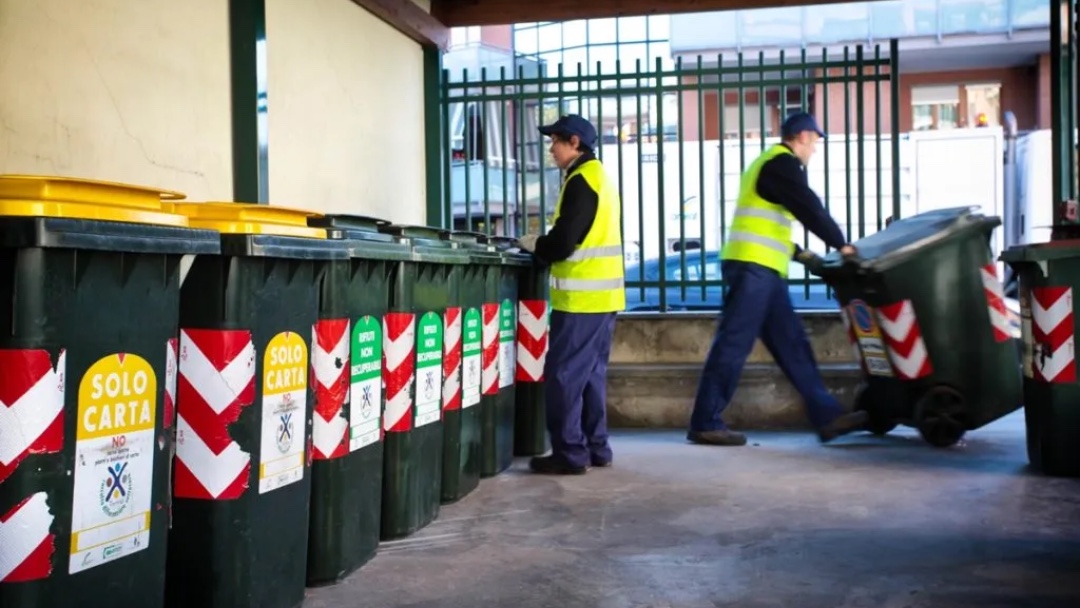Two weeks ago, the new edition of the Observatory on innovative companies in the Turin area was presented, created by the Turin Chamber of Commerce in collaboration with the Department of Management and Production Engineering of the Polytechnic University of Turin. 1,950 companies in the area were analyzed, selected on the basis of specific criteria: having made patent filings, having received funding for research and innovation on competitive tenders, affiliation to innovation hubs, registration in the special sections of the Business Register of innovative startups and SMEs, having reached a significant economic size (turnover of more than 50 million euros). Overall, it is a group of companies with good economic performance: average revenue growth of 7.5% between 2021 and 2023, a significant increase for all size classes, more than 15% between 2021 and 2023. The aim of the analysis is to investigate the link between this economic performance and investment strategies and choices in research and innovation.
Massimiliano Cipolletta, President of the Turin Chamber of Commerce, explained: “We wanted to analyze a particular universe of about 2 thousand companies, which are healthy, with good economic performance and able to express high levels of innovation regardless of size, sector or stage of development. High spending on digitization, widespread commitment to sustainability and attention to social impact, frequent collaborations established in the supply chain or with the university world: these companies are mainly looking for funding and qualified personnel to continue to grow. The Chamber of Commerce provides services dedicated to startups and innovative companies, both for administrative aspects and for digital and green growth, the search for funding and the evaluation and acceleration of innovative capacity“.
As highlighted by Professor Giuliana Mattiazzo, Vice-Rector for Scientific-Technological Innovation at the Polytechnic University of Turin: “The study highlights an industrial fabric with a significant propensity for innovation in different technological fields. It is significant that about 50% of companies declare that they have collaborated for the development of their innovative solutions with academic institutions. This collaboration is essential to ensure the conditions at the ecosystem level for a transition to more radical and skills-intensive innovation models, which are essential for international competitiveness. For local companies, the cost of personnel dedicated to innovation represents the largest incidence of total R&D expenditure. In this perspective, the continuous development of technological skills emerges as a key factor. The Polytechnic University of Turin has always been committed to the design of training courses to support the evolution of these skills needs in the area“.
The questionnaire, administered in the first months of 2025, collected 428 respondents with these characteristics: 7.5% large companies, 16% medium-sized enterprises, 60.5% small and micro enterprises, 16% innovative startups. The most represented sector is manufacturing (32%), followed by ICT (23%). Among all the companies interviewed, in 45% of cases the presence of graduate personnel in the company exceeds 50%.
The study compares different types of companies such as startups, micro, small, medium and large enterprises and aimed to monitor the evolution of technological and organizational innovation in the different realities of the territory. In particular, the survey aimed to analyze the governance models, digitization processes and sustainability strategies adopted by companies, better understanding their innovation paths, barriers and enabling factors, also highlighting the role of public policies and financing.
For almost all the aspects analyzed, there are also very different paths between startups and medium and large companies. Analyzing the business model, 70% of startups mainly offer services, while 70% of medium and large companies are more oriented towards the production of goods. In the definition of the customer portfolio, startups and micro-enterprises show a high dependence on a few customers (60% of turnover dependent on 3 main customers), while as the company size increases, there is greater heterogeneity with larger customer bases. The propensity to export reaches 76% for medium and large companies, while it is equal to 35% in startups. This figure is influenced by the presence in the sample of recently established startups still engaged in the product development phase.
In general, almost all responding companies have adopted innovative solutions: in the two-year period 2023-2024, 66% introduced product innovations, 71% introduced process innovations, and just under half ( 49%) invested in R&D.
Wanting to deepen the innovation paths undertaken by local companies, the data clearly show that for all types of companies the relevant objective is the improvement of the quality of products and services. Large companies attach particular importance to reducing costs and production times, but also to the sustainability of processes and products and the improvement of working conditions. Startups, on the other hand, consider the development of products for new markets to be central, but they are less focused on organizational or process innovations. For 55% of medium and large companies , innovation paths are structured and capital intensive, for example with the introduction of plant and machinery. For 43% of startups , on the other hand, innovation is radical, demonstrating approaches of a more exploratory nature.
With respect to spending on digitization, 13% of medium and large companies and 43% of startups indicate a very significant incidence, greater than 5% of turnover. Most medium and large companies account for between 2% and 5% of turnover. Large companies are confirmed as the most active and structured on advanced digital and production technologies, in particular in safety systems, MES (Manufacturing Execution System) software, robotics and data management. Startups, even with less infrastructure, stand out for their intensive use of artificial intelligence, 3D printing, IoT and simulation.
Looking at the actions taken for sustainability, as many as 64% of medium and large companies have set voluntary goals; specifically, for environmental sustainability, actions to promote decarbonization, the use of renewable sources, and self-production of energy. In terms of social impact, the most common actions are projects for the improvement of corporate welfare, for inclusiveness and for measuring the social impact of the business. Startups stand out in innovative welfare practices, while large companies are more oriented towards monitoring their supply chains and professional development paths.
The composition of R expenditure reveals a strong centrality of internal resources, regardless of size class. Startups are also distinguished by a more frequent use of external RD services. 73% of companies declare collaborations with their suppliers, followed by consulting companies (66%) and customers (65%). The useof collaborations with universities (49%) for the development of innovative technologies, products and services is also significant. In addition, a group of companies mentions collaborations (about 30%) for innovation with other players in the system such as innovation hubs and research and competence centers.
The issue of obstacles to innovation was also analyzed: the first element that clearly emerges is the lack of financial resources, with particularly high values among startups and micro-enterprises. Next, the lack of public funding is noted, confirming the importance of these measures for smaller and developing realities. Other critical factors concern the difficulty in finding qualified personnel, and the lack of managerial skills.
The issue of financing is central: self-financing represents the main financial source for innovation expenditure, with the risk of a strong dependence on the dynamics of the economic cycle. This is followed, at a distance, by non-repayable public contributions and tax breaks. Small and medium-sized enterprises are also more active in the use of medium-long term bank credit, while startups stand out for their greater use of capital from pre-existing partners and, in part, new partners and venture capital.
As far as the use of competitive tenders is concerned, the main figure that emerges is that about half of the companies obtained funding between 2021 and 2023. In particular,25% of companies obtained financing with funds from regional laws and 12% with PNRR funds. On the specific issue of digitization, 46% of companies have used public measures.
As part of the activities of the Observatory on Turin’s innovative companies, the Turin Chamber of Commerce, with the support of the Piemonte Innova Foundation, has also promoted two focus groups dedicated to the theme of artificial intelligence. The initiative involved local companies – both solution developers and users – in a direct and operational discussion on how to introduce AI into business processes. From the discussion, a vision of artificial intelligence emerged as a concrete lever to optimize activities, improve productivity and support decisions. Companies highlighted the value of real-world use cases, accessible tools and step-by-step approaches, highlighting how AI adoption is effective when linked to concrete needs and directed learning.
(Source: Turin Chamber of Commerce press release)





